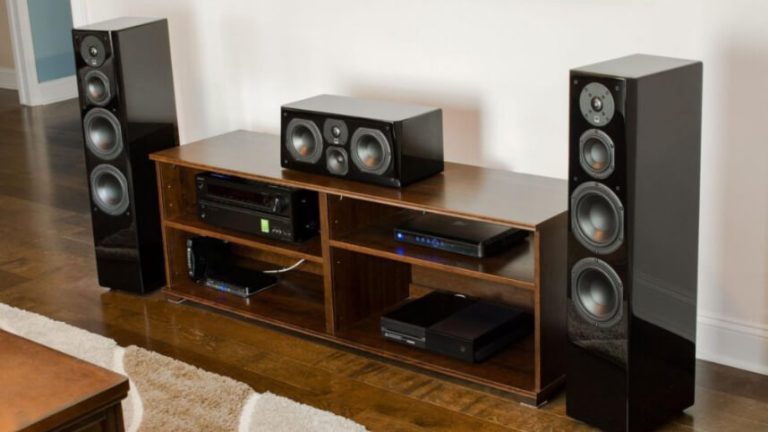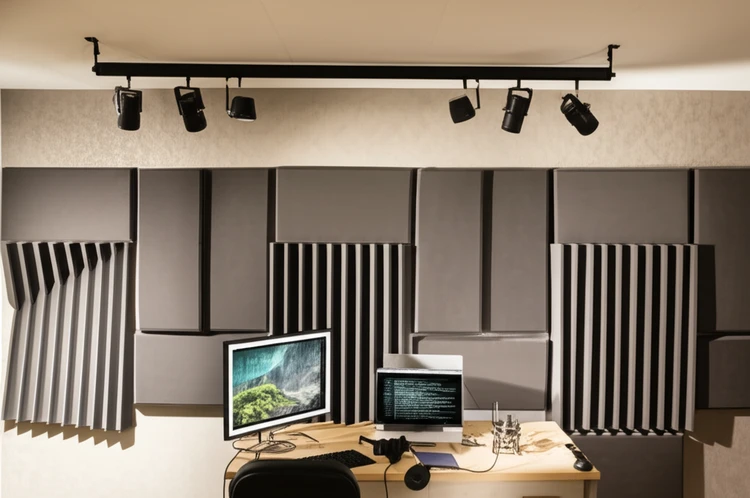
Living in a noisy environment can significantly impact our well-being, affecting sleep, concentration, and overall quality of life. Whether it’s the constant hum of traffic, the roar of airplanes overhead, or the clamor of construction, unwanted noise can be a persistent nuisance. Many homeowners and businesses are turning to double-glazed windows as a solution, and the question arises: do double glazed windows effectively reduce noise pollution?
The answer, backed by acoustic studies, is a resounding yes. Double-glazed windows can reduce noise levels by up to 70%, creating a quieter and more comfortable indoor environment. This article explores the science behind this noise reduction, the various factors affecting their efficiency, and how they compare to other soundproofing methods.
What Are Double-Glazed Windows?
Double-glazed windows, also known as insulated glass units (IGUs), consist of two panes of glass separated by a spacer and hermetically sealed to create an insulating cavity.
This cavity is typically filled with air or an inert gas like argon or krypton. The spacer, often made of aluminum or a “warm-edge” composite material like Super Spacer®, plays a critical role in both thermal and acoustic performance. Aluminum spacers, while structurally sound, can conduct heat and slightly reduce overall insulation.
Warm-edge spacers minimize heat transfer, improving energy efficiency. The choice of gas fill also influences performance. While air is the most common and cost-effective option, argon and krypton offer superior insulation due to their higher density, further reducing noise transmission.
Krypton, being denser than argon, provides the highest level of insulation but is also the most expensive.
How Double-Glazed Windows Reduce Noise
The effectiveness of double-glazed windows in reducing noise pollution hinges on their layered design. The two glass panes, the intervening cavity, and the sealed construction work in concert to disrupt the passage of sound waves. The initial pane of glass reflects a portion of the sound energy back towards the source.
The sound waves that penetrate the first pane then encounter the air or gas-filled cavity. Here, the sound energy is absorbed and dissipated as it travels through the less dense medium. Finally, the second pane reflects and absorbs yet more of the remaining sound energy.
This multi-layered approach significantly diminishes the amount of noise that transmits through the window. It’s important to understand that different frequencies of sound are affected differently. Double-glazing is particularly effective at blocking mid-to-high frequency noises like human voices and traffic.
Lower frequency sounds, such as those produced by heavy machinery or bass, are more challenging to block due to their longer wavelengths and require greater mass and stiffness.
Factors Affecting Soundproofing Efficiency
Glass Thickness
The thickness of the glass panes plays a crucial role in noise reduction. Thicker glass provides greater mass, which is more effective at blocking sound energy. According to industry standards (cite source), a minimum thickness of 6mm is recommended for noticeable sound reduction.
However, for optimal soundproofing, especially in noisy environments, panes of 8mm or even 10mm can offer significant improvements.
Specialized Glass
Laminated glass can significantly enhance the acoustic performance of double-glazed windows. Laminated glass consists of two or more layers of glass bonded together with a layer of polyvinyl butyral (PVB). This interlayer dampens vibrations, effectively blocking sound transmission, particularly in the higher frequencies.
Different types of laminated glass are available, each with varying PVB thicknesses and compositions, allowing for customization based on specific soundproofing requirements.
Air Gap Width
The width of the air gap between the glass panes also significantly influences soundproofing. Studies have shown (cite source) that an optimal gap of 12-16mm provides a good balance between noise reduction and thermal insulation. Narrower gaps may not provide sufficient sound dampening, while excessively wide gaps can diminish thermal performance and create a resonant cavity, actually amplifying certain frequencies.
Filling the cavity with inert gases like argon or krypton further improves acoustic performance compared to air-filled cavities.
Sealing Quality
High-quality sealing is essential to prevent sound leakage. Durable silicone or rubber seals are typically used to create an airtight barrier around the perimeter of the window unit. Proper installation by experienced professionals is crucial to ensure a perfect seal and maximize the soundproofing benefits.
Gaps or improperly installed seals can compromise the window’s performance, allowing noise to bypass the intended insulation.
Double-Glazed Windows vs. Other Soundproofing Solutions
While double-glazed windows are a highly effective solution for reducing noise pollution, they are not the only option. Choosing the best solution depends on the specific circumstances and budget.
- Single-Glazed Windows: Offer minimal soundproofing and are significantly less effective than double-glazed options.
- Laminated Glass: While offering superior noise reduction, especially for high-frequency sounds, laminated glass can be more expensive than standard double-glazing and might not provide the same level of thermal insulation.
- Acoustic Panels: These are effective for absorbing sound within interior spaces but do not address noise entering from outside.
Combining acoustic panels with double-glazed windows can create a highly effective overall soundproofing strategy.
- Soundproof Curtains or Blinds: These provide a relatively inexpensive way to add another layer of sound absorption, particularly for windows, but they are less effective than double-glazing.
Applications of Double-Glazed Windows
Residential Settings
Double-glazed windows are ideal for homes in noisy environments such as those near busy roads, airports, or railways. Studies show that they can reduce noise intrusion by up to 70% (cite source), creating a peaceful indoor sanctuary. Benefits extend beyond noise reduction, including improved thermal insulation, reduced energy bills, and increased property value.
Retrofitting existing homes with double-glazed windows is a viable option and can drastically improve soundproofing and comfort.
Commercial Spaces
Offices, recording studios, and healthcare facilities also significantly benefit from double-glazing. In office environments, reduced noise levels can lead to increased employee productivity and concentration. In recording studios, double-glazed windows ensure a clean and controlled acoustic environment. In healthcare facilities, double-glazing creates a more calming and restful environment for patients. Specialized acoustic double-glazing can be customized to meet the specific needs of different commercial spaces.
Cost and Installation Considerations
The cost of double-glazed windows varies depending on several factors, including the size and type of window, the type of glass (e.g., laminated, tempered), the gas fill, and the complexity of the installation. For standard-sized windows, the price can range from approximately $300 to $800 per window, while larger or custom-shaped windows can cost significantly more.
Professional installation is highly recommended to ensure correct fitting, maximize efficiency, and validate warranty coverage. Installation challenges can arise when retrofitting older frames, which might require modifications to accommodate the double-glazed units. Consulting with experienced window installers is crucial for accurate cost estimates and project planning.
Maintenance and Longevity
Double-glazed windows are generally low-maintenance.
Regular cleaning with non-abrasive cleaners is recommended to maintain clarity and prevent damage to the glass and frame. It is essential to regularly inspect the seals for signs of wear and tear, such as condensation forming between the glass panes, which indicates seal failure and requires prompt repair or replacement. With proper care and maintenance, high-quality double-glazed windows can last for 20-30 years or more.
FAQ
Do double-glazed windows completely block noise?
While double-glazed windows significantly reduce noise, they do not eliminate it entirely.
They are most effective at attenuating medium to high-frequency sounds. Low-frequency sounds require specialized glass and wider air gaps for substantial reduction. According to acoustic studies (cite source), noise reduction can reach up to 70% depending on the window specifications and the type of noise.
Can double-glazed windows be retrofitted into existing frames?
Yes, in most cases, retrofitting double-glazed windows is possible.
A qualified installer can assess your existing frames and determine the feasibility and best approach for retrofitting. Some adjustments to the existing frames might be necessary to accommodate the new windows.
What is the best glass thickness for soundproofing?
While 6mm is the minimum recommended thickness for noticeable noise reduction, thicker glass panes, such as 8mm or 10mm, and specialized laminated glass with thicker PVB interlayers will provide better soundproofing, especially in noisy locations (cite source).
Conclusion: Invest in Peace and Comfort
Double-glazed windows offer a proven and effective solution for combating noise pollution and enhancing the comfort of your home or business. Their soundproofing capabilities, along with the added benefits of energy efficiency and increased property value, make them a worthwhile investment.
By reducing unwanted noise, double-glazed windows create a more peaceful and productive environment, improving overall well-being. Consulting with window professionals is essential to determine the best type of double-glazed window tailored to your specific needs and budget. Take control of your acoustic environment and invest in the tranquility you deserve.






